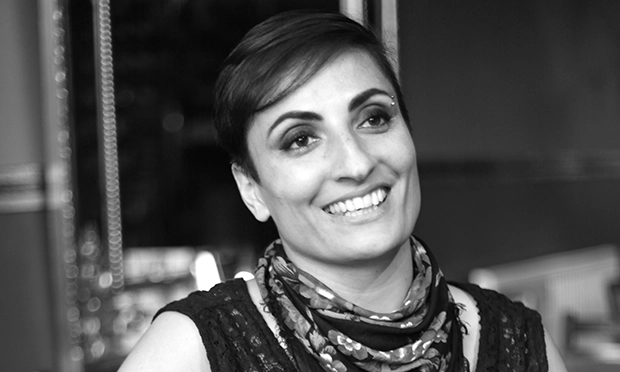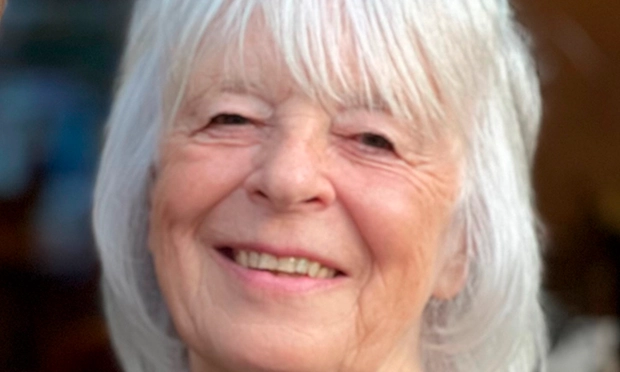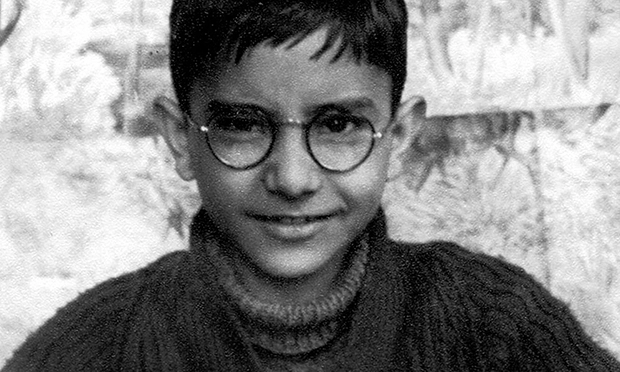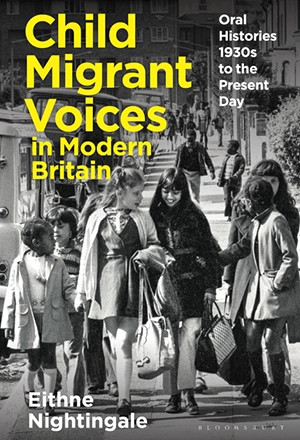Child Migrant Voices in Modern Britain, Eithne Nightingale, book review: ‘Unique perspectives on how we live’

Eylem Binboga, pictured in 2014 at her now-closed cafe on Morning Lane. Photograph: courtesy Eylem Binboga / © Eithne Nightingale
Celts, Vikings, Angles, Saxons, Normans, Afro-Caribbeans, South Asians, Vietnamese, Poles, Ukrainians: these are but some of the many groups that have come to these shores and woven themselves into the texture that makes up contemporary Britian.
The contributions these peoples have made is beyond doubt, but how many of us have really thought about what they went through to get here?
For children, the loss of quitting one’s homeland is often compounded by the trauma of leaving parents, grandparents, sisters and brothers for the incomprehensibility of an alien place in which they arrive involuntarily.

Author and photographer Eithne Nightingale. Photograph: courtesy Eithne Nightingale
Now Eithne Nightingale has gathered together the experiences of people who came to the UK as children and settled, mostly in Hackney and East London.
Child Migrant Voices in Modern Britain: Oral Histories 1930s-Present Day relates the narratives of immigrants from the Kindertransport that saved Jewish children from Nazi Germany in 1938 through to the wave of Ukrainian refugees who have arrived since the Russian invasion of 2022.
Drawing on know-how and contacts from a career working in adult education and museums, Nightingale’s sensitive collation of stories is remarkable for the sheer diversity of the experiences it details.

Duncan Ross, aged 11, at Northwold Road Primary School, Hackney, 1959. Photograph: courtesy Duncan Ross
One is struck by the number of places fractured by their experience of British colonialism and the aftermath of decolonisation – Cyprus, Nigeria, Yemen, India, Pakistan/Bangladesh.
In so many of the accounts contained in these pages, the colonial legacy has created conditions in which children have not been able to live safely and have been obliged to seek refuge in the UK, only to be subject to racism and discrimination here.
These include the late Duncan Ross, a Catholic Anglo-Indian from Calcutta who only realises he is ‘brown’ upon arrival in Hackney.

The book’s cover, which features a photograph by Neil Martinson of children walking to William Patten School in 1974.
Yet the accounts also include that of Eylem Binboga, who discovers her Kurdish heritage and identity in London, her family having hidden it for their own protection in her native Turkey.
And there are heartening stories of Vietnamese Linh Vu, Ukrainian Mariia and Syrian Malek being warmly welcomed as refugees from war-torn countries.
We learn with sadness that child migrants often bear deep scars that stay with them, but they also have unique perspectives on how we live.
You can find out more about the book and its participants at childmigrantstories.com and through accompanying films at childmigrantstories.com/films.
An event linked to the book, featuring readings, films and discussion, takes place on 29 May from 6.30-9pm at Sutton House in Homerton.
Child Migrant Voices in Modern Britain: Oral Histories 1930s-Present Day by Eithne Nightingale is published by Bloomsbury; ISBN: 978-1-350-33260-7; RRP: £16.19.
